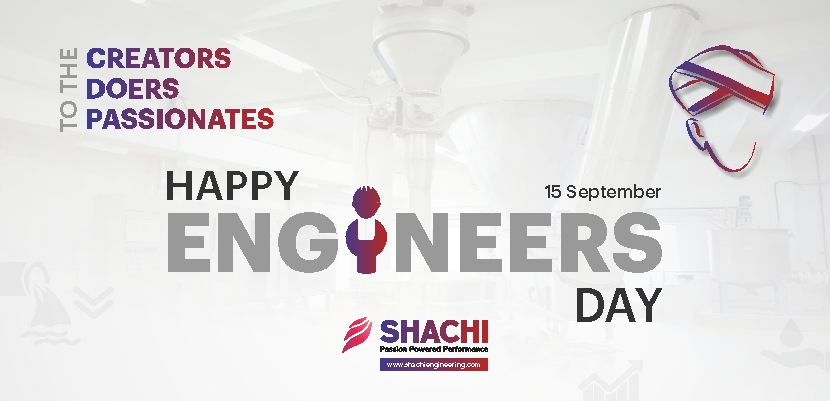Every year, on September 15th, India celebrates Engineers’ Day in honour of one of its greatest sons, Sir M. Visvesvaraya. A man of exceptional engineering prowess and unwavering commitment to his nation, Sir Visvesvaraya’s legacy continues to inspire engineers to this day.
Born in 1861, Sir Visvesvaraya’s engineering achievements left an indelible mark on India’s development. He was a great visionary and a practitioner, making significant breakthroughs in water resource management. His expertise in building dams and irrigation systems fulfilled the critical needs of a young and growing nation.
What set him apart was his unyielding ethics, total sincerity, and an unshakable belief in the power of Indian ingenuity. Sir M. Visvesvaraya’s work exemplified the spirit of dedication and his unwavering commitment to the betterment of the nation.
What can we learn from the life of Sir M. Visvesvaraya?
We must remember that securing water is a noble goal.
Sir Visvesvaraya’s most iconic contribution to water management was his involvement in designing and constructing the Krishna Raja Sagara Dam (KRS Dam) across the river Cauvery in Mysore, now Karnataka. This engineering marvel, completed in 1931, not only provided a reliable water supply for irrigation but also generated hydroelectric power. Sir Visvesvaraya’s meticulous planning and engineering skills ensured that the dam served its intended purpose efficiently, benefiting farmers and the region’s economy. His ethical commitment to fulfilling the water needs of the people and sustainable development is evident in the KRS Dam’s enduring legacy. Today, as we develop advanced technologies for wastewater treatment, we must keep the intent of treating as a noble goal.
Modernisation, Reforms and Advocacy for Water Conservation can only succeed with the complete dedication of all.
Sir Visvesvaraya strongly advocated for water conservation and equitable distribution throughout his career. He championed irrigation reforms and emphasized the importance of efficient water management practices. His ethical stance against wastage and his dedication to the welfare of the farming community was evident in his efforts to modernize irrigation systems and promote responsible water use. In today’s cost-centric context, net water-positive commitment requires total modernisation, compliance reforms and, above all, a commitment from everyone to this noble goal.
Remember the importance of ethical leadership. Water is a welfare resource, not our private property.
Sir Visvesvaraya’s ethical principles extended beyond his engineering projects. As a public servant and statesman, he served with integrity and dedication. Set a high standard for others in the public service sector. His leadership in various administrative roles, including as the Diwan (Prime Minister) of Mysore, demonstrated his unwavering commitment to the welfare of the state and its people, including managing water resources. We must follow and fulfil our responsibility towards ‘water’ with the same high ethical standards in today’s world.
In these examples, Sir Visvesvaraya’s ethics are evident in his dedication to serving the greater good, his commitment to sustainable water management, and his advocacy for responsible resource use. Today, his legacy resonates with a new generation of engineers determined to take India forward by addressing one of its most pressing challenges – water scarcity. The goal is no longer to meet the nation’s water needs but to achieve a net water-positive status. This requires a holistic approach to water management, which he championed long before it became a global imperative.
The picture today!
In the modern era, engineers are building Zero Liquid Discharge (ZLD) systems, wastewater recovery technologies, and advanced purification systems. They work tirelessly to ensure that every drop of water is used efficiently, treated effectively and conserved diligently. Clean water, a fundamental human right, remains a challenge in India and worldwide. Engineers today, inspired by the principles of Sir M. Visvesvaraya, are at the forefront of the battle to provide clean water to all.
His wisdom and approach to engineering continue to guide us as we navigate complex water-related challenges. We have learned that water is not an isolated issue but deeply intertwined with agriculture, industry, and environmental sustainability. Engineers now understand the importance of a more interrelated approach to water management, focusing on recycling, reducing wastage, and creating self-sustaining ecosystems.
As we commemorate Engineers’ Day, remember that while the technologies and challenges have evolved, the values guiding Sir M. Visvesvaraya remain unchanged. Commitment, integrity, innovation, and an unwavering belief in the power of engineering to transform lives are the attributes that make great engineers, and they are the legacy he left behind for generations to come.
In a world where the pursuit of knowledge and progress never stops, may Engineers’ Day be a reminder that we stand on the shoulders of giants like Sir M. Visvesvaraya and carry forward the torch of innovation, engineering excellence, and the dream of a better, water-sufficient world.

